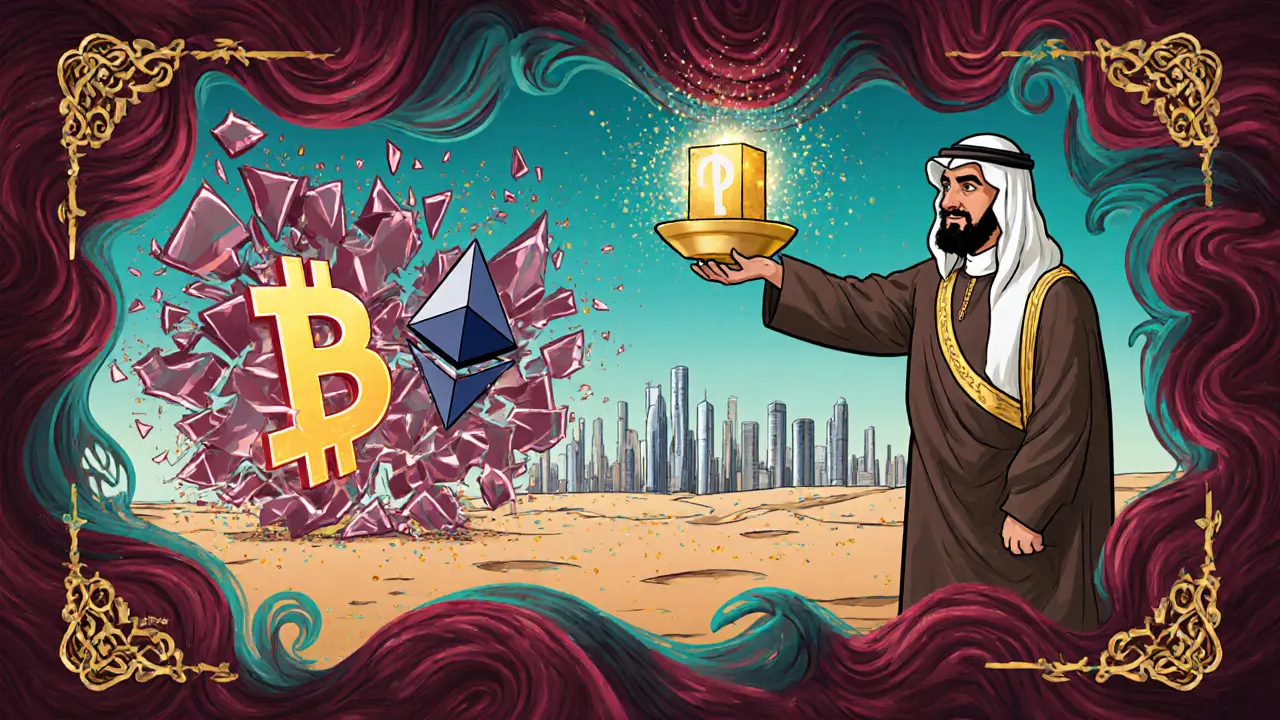Tokenized Assets Qatar: Real-World Asset Tokenization Explained
When we talk about tokenized assets, digital representations of physical or financial assets like real estate, gold, or government bonds, traded on blockchain networks. Also known as real-world asset tokenization, it’s what’s turning traditional investments into programmable, fractional, and globally accessible assets. In Qatar, this isn’t just theory—it’s happening. With the country pushing to become a regional fintech hub, tokenized assets are moving from pilot projects into real financial infrastructure.
Qatar’s government has been quietly building the legal and technical backbone for RWA tokenization, the process of converting physical assets into blockchain-based tokens that can be bought, sold, or traded like crypto. Unlike some countries that ban crypto, Qatar is focusing on regulation that supports innovation. Think of it like this: instead of owning a whole apartment, you can own 0.5% of it as a digital token. That’s the power of tokenization. And it’s not just for rich investors—smaller players can now get exposure to assets that used to require millions upfront.
This shift is being driven by institutional demand. Qatar’s sovereign wealth fund and major banks are exploring tokenized tokenized treasuries, government debt instruments represented as digital tokens that pay interest and can be traded 24/7 on secure blockchains. Why? Because they’re faster, cheaper, and more transparent than paper bonds. Plus, with global markets moving toward 24/7 trading, tokenized assets fit perfectly into Qatar’s vision of a next-generation financial center.
What does this mean for you? If you’re interested in crypto, investing, or just keeping up with where money is headed, tokenized assets in Qatar are a real signal. This isn’t about memes or speculative coins—it’s about rewriting how ownership works. You’ll find posts here that break down how RWA tokenization is scaling globally, what regulations apply in the Middle East, and which projects are actually delivering value—not just hype. Some cover the $34.86 billion market size, others dig into compliance, and a few show you exactly how to spot legitimate opportunities versus scams. No fluff. Just what’s working, who’s doing it, and why Qatar is one of the few places where this is actually taking off.
Crypto Restrictions for Qatar Residents: What's Banned and What's Allowed in 2025
Qatar bans Bitcoin and all cryptocurrencies but allows legal investment in tokenized real-world assets like property and bonds. Learn what's prohibited, what's allowed, and how the 2024 rules affect residents and businesses.
